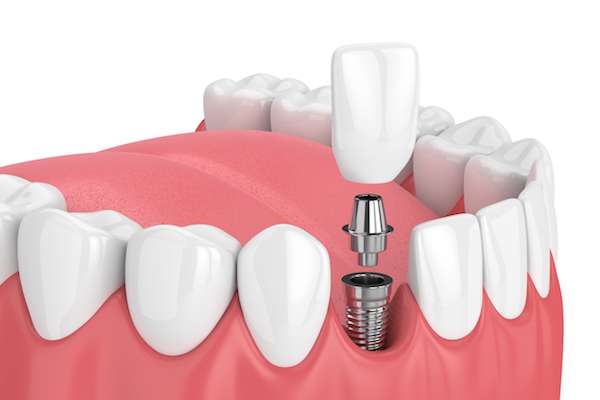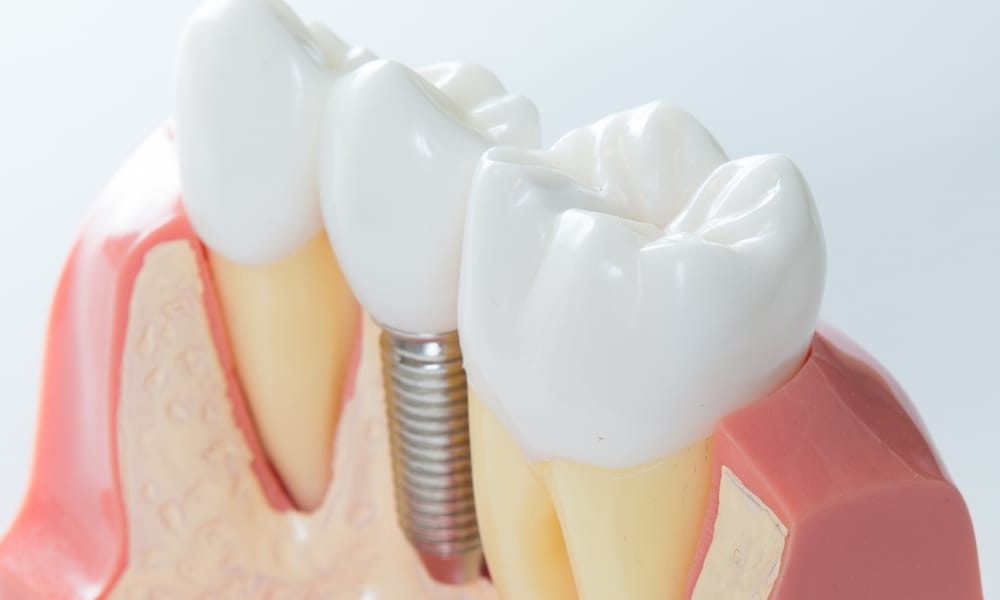Dental implants are a popular solution for tooth loss, providing a permanent and durable alternative to dentures and bridges. When properly cared for, dental implants can last a lifetime, making it essential to understand the best practices for maintaining them. This article explores how to care for your dental implants effectively, ensuring they remain in excellent condition for years to come.
Understanding Dental Implants
Before diving into care routines, it’s important to understand what dental implants are. Composed of titanium posts that are surgically inserted into the jawbone, dental implants serve as artificial tooth roots.
Once integrated with the bone, these implants support replacement teeth, such as crowns or dentures. Because they fuse with the bone, dental implants provide stability and functionality similar to natural teeth.
Daily Oral Hygiene Practices
Maintaining good oral hygiene is crucial for the longevity of dental implants. Here are some daily practices to follow:
1. Brush Regularly
Brushing your teeth at least twice a day is vital, especially around the area of your dental implants. Use a soft-bristled toothbrush to gently clean the implant site and surrounding teeth. It’s important to use fluoride toothpaste, as fluoride helps prevent cavities and maintain the health of the gums.
2. Floss Daily
Flossing is essential for preventing gum disease, which can affect both natural teeth and implants. Use unwaxed dental floss or a floss threader designed for implants to carefully clean around the base of the dental implant. This helps remove plaque and food particles that can accumulate in hard-to-reach areas.
3. Use Antimicrobial Mouthwash
Incorporating an antimicrobial mouthwash into your oral hygiene routine can help reduce bacteria in your mouth. Rinse with an alcohol-free mouthwash to maintain the health of your gums and keep the area around your dental implants clean.
Regular Dental Check-Ups

Routine dental visits are essential for the ongoing health of your dental implants. Here’s what to expect during these visits:
1. Professional Cleanings
During your dental check-up, your dentist or hygienist will perform a thorough cleaning of your teeth and implants. Professional cleanings help remove tartar and plaque buildup that regular brushing and flossing may miss. This is particularly important for the health of the surrounding gum tissue.
2. Monitoring Implant Health
Your dentist will monitor the condition of your dental implants and surrounding tissues during regular check-ups. They will check for signs of gum disease, bone loss, or any other issues that could compromise the longevity of your implants.
Healthy Lifestyle Choices
In addition to daily oral care and regular check-ups, certain lifestyle choices can significantly impact the success of your dental implants.
1. Avoid Tobacco Products
Tobacco use can hinder healing and increase the risk of implant failure. If you smoke or use tobacco products, consider seeking support to quit. This can greatly improve your oral health and the success rate of your dental implants.
2. Maintain a Balanced Diet
Eating a nutritious diet rich in vitamins and minerals supports oral health. Foods high in calcium, phosphorus, and vitamin D are particularly beneficial for maintaining strong bones and gums. Ensure you’re getting a variety of fruits, vegetables, lean proteins, and whole grains to support your overall health.
3. Limit Sugary and Acidic Foods
While it’s impossible to avoid all sugary and acidic foods, moderation is key. Consuming too much sugar can lead to plaque buildup and cavities, which can affect both natural teeth and implants. Rinse your mouth with water after consuming these foods to help neutralize acids and wash away sugar.
Managing Potential Issues
Despite diligent care, some issues may arise with dental implants. It’s essential to be aware of common problems and how to address them:
1. Gum Sensitivity or Inflammation
If you notice any sensitivity, swelling, or inflammation around your dental implants, contact your dentist immediately. These could be signs of peri-implantitis, a condition that can lead to implant failure if not treated promptly.
2. Changes in Bite or Discomfort
If your bite feels off or you experience discomfort around your dental implants, schedule an appointment with your dentist. They can assess the fit of your implant-supported restoration and make necessary adjustments to ensure proper alignment.
3. Wear and Tear on Restoration
Over time, the crown or bridge attached to your dental implant may show signs of wear. Regular check-ups will allow your dentist to evaluate the condition of your restoration and recommend replacement if needed.
Conclusion
Caring for your dental implants is essential for achieving long-lasting results and maintaining your overall oral health. By following a diligent oral hygiene routine, attending regular dental check-ups, and making healthy lifestyle choices, you can ensure your implants remain functional and aesthetically pleasing for years to come.
Remember, dental implants are a significant investment in your smile and quality of life; taking the time to care for them properly is crucial for reaping their full benefits. If you have any concerns or questions about your dental implants, consult your dentist to get personalized advice tailored to your needs.

